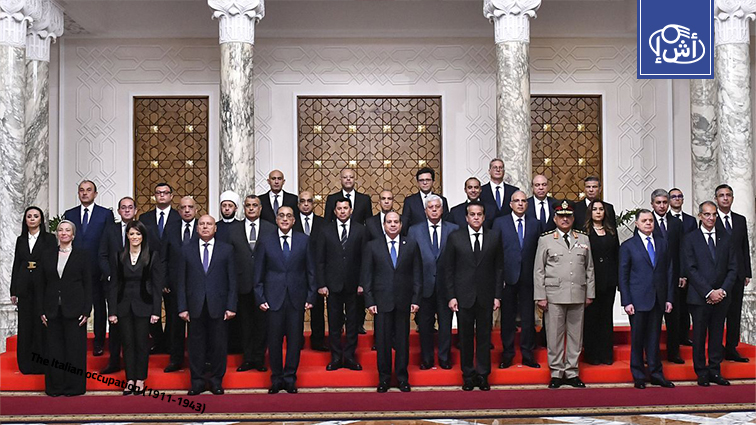The new Egyptian government was sworn in before President Abdel Fattah El-Sisi, in light of major economic challenges and raging conflicts in neighboring countries.
The changes coincide with growing popular discontent due to years of economic mismanagement, the coronavirus pandemic, and the repercussions of wars in Europe and the Middle East.
The new government, headed by Mostafa Madbouly, witnessed fundamental changes in the ministerial portfolios related to defense and economy, and some ministers remained in their positions, such as the ministers of police, health, and transportation.
Sherif Fathi replaced Ahmed Issa as Minister of Tourism and Antiquities in the new government. Mahmoud Esmat was appointed as Minister of Electricity to deal with recurring power outages during the summer.
Changes at the Ministry of Foreign Affairs included the appointment of Badr Abdel Aty, who served as Egypt’s envoy to several European countries, as Minister of Foreign Affairs and Immigration, replacing Sameh Shoukry.
The government appointed Lieutenant General Abdel Majeed Saqr as Minister of Defense, succeeding Lieutenant General Mohamed Zaki, and the government replaced Finance Minister Mohamed Maait with his deputy, Ahmed Kjouk, who played a major role in implementing the economic reform program with the International Monetary Fund.
This change came in light of a worsening economic crisis, with about 30% of the population living in poverty, and austerity measures intensified popular discontent due to rising prices.
The government recently floated the Egyptian pound and raised the main interest rate, making the American currency trade at more than 47 Egyptian pounds after it was about 31 pounds.
Egypt faces additional challenges as a result of Houthi attacks in Yemen on shipping routes in the Red Sea, which reduced Suez Canal revenues. The tourism sector is suffering from the effects of previous unrest, the Corona pandemic, and the ongoing wars.
Libya ranks first in exporting migrants to Italy
